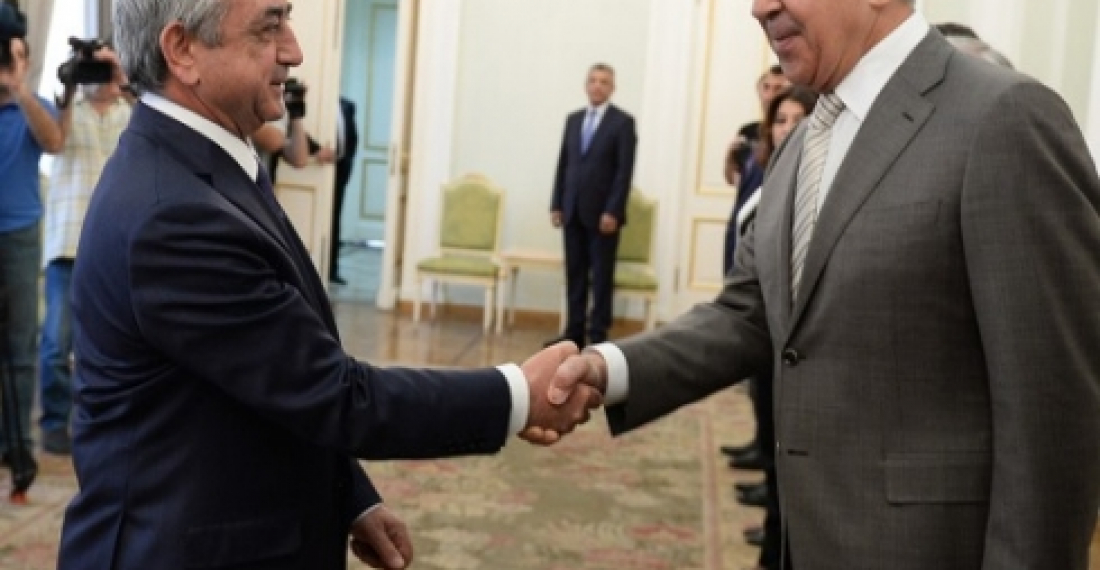The Russian Foreign Minister, Sergei Lavrov, on Monday was in Yerevan on the second leg of his trip to the South Caucasus region. Last week Lavrov was in Baku where he held talks with President Ilham Aliev and other government officials. In Yerevan this morning Mr Lavrov was received by the Armenian President Serzh Sargsyan. During his visits Lavrov also met with the Foreign Minister of the two countries.
Commonspace.eu political editor said these trips to Baku and Yerevan have not been easy for the head of the Russian diplomacy. "With major ongoing global crisis, including, Ukraine, Syria, Iraq and others, putting a huge demand on his time, the visit to the South Caucasus could be seen as an unecessary distraction for Foreign Minister Lavrov.
Yet currently for Russia, relations with Armenia and Azerbaijan are increasingly important, as it seeks to build a new order in the post-Soviet space. Nowhere is this more difficult than in the South Caucasus where Armenia and Azerbaijan are caught in a bitter struggle that has been ongoing since the collapse of the USSR. Russia is having a difficult time balancing its relations with the two countries. Whilst Armenia is formally an ally - a member of the CSTO, and soon of the Eurasian Customs Union, Russia is keen also to maintain Azerbaijan within its sphere of influence. This is becoming increasingly difficult since Azerbaijan is now much more assertive in putting forward its own demands and Lavrov knows that Azerbaijan also maintains strong relations with Western countries such as the US and the UK, as well as with the European Union. Attempts by pro-Russian sympathisers in Baku have so far failed to derail these relations.
Whilst Karabakh would have featured in the discussions with both governments, Lavrov is likely to have spent most of the time discussing bilateral relations with both governments. In Yerevan Lavrov also discussed issues related to Armenia's admission to the Customs Union and the Eurasian Economic Union. Armenia is trying to extract the highest price possible for having taken this route in its foreign policy. Whilst Russia is sympathetic, and largely obliging, the other two member states, Kazakhstan and Belarus seem to have concerns. Discussions are ongoing in Sochi on several outstanding issues. Lavrov said in Yerevan he was hoping for good news to come from the Sochi meetings."
source: commonspace.eu
photo: The president of Armenia, Serzh sargsyan, welcoming the foreign minister of Russia, Sergey Lavrov in Yerevan on 23 June 2014. (picture courtesy of the Press Service of the President of Armenia).







